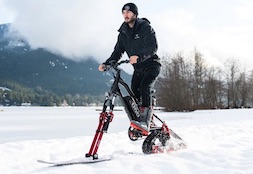There’s just something about squawking along to “Tiny Dancer” while you skid along Route 66 and the sun sets over the desert of Nowhere, West Texas. There’s something about sweating through the white t-shirt you’ve been wearing for the last four days straight, because you’re air guitaring too hard to “Born to be Wild” on your muggy descent to Key West. There’s something about coincidentally being on Ventura Boulevard when Tom Petty sings about all those vampires moving down Ventura Boulevard. There’s something about the newspapery smell of the pavement, the metronomic thud of the wind whipping through the windows, something about the leaving, the going, the rapidly expanding terrain of the unknown. It makes you feel cool. Like, bad to the bone cool.
Since Jack Kerouac and his beatnik compatriots burned down the American highways in the 1950s and inculcated our culture with the fantasy of freeway freedom, the cross-country road trip has established itself as a romantic rite of passage for American youth, promising roadside dives, spliffs, gin-soaked love affairs, watery diner coffee and cowboy grifters who bear a resemblance to a young Brad Pitt.
Yet while it remained firmly entrenched in the American consciousness, the actual practice of road tripping as a popular vacation choice declined from roughly the early 1970s to the early 2000s, in correlation with the rise of the travel industry and its readymade vacation packages, priced at accessible rates for middle-class families. But as interest in adventure, sustainability and the quote-unquote “authentic” experience increases, sitting in a car drinking Arizona Iced Tea and driving through logging towns in Washington might seem more appealing to today’s travelers than sipping watered-down piña coladas at an all-inclusive beach resort. Plus: in the land of the free, what could be more liberating than a full tank of gas and the open road?
Last year, I had the pleasure of completing my own American rite of passage, during a five-month car trip around the country: New Orleans to New York; New York to Chicago; Chicago up over the Canadian border to Calgary, via Wisconsin, Minnesota, South Dakota and Montana; Calgary to Vancouver; Vancouver back down to Seattle; Seattle all the way down the West Coast to Los Angeles; Los Angeles to Albuquerque; Albuquerque up through northern New Mexico, then down to Houston; and, finally, from Houston back to New Orleans.
Unlike many forms of travel with a particular destination, the road trip is is just as much about the time spent in the car as it is about the time spent outside of it; it’s just as much about the stops along the way—like Wall Drug, the Kardashian of tourist attractions—as it is about making it to the Calgary Stampede in time to meet up with that Canadian wildfire spotter you had a fling with in Mexico last year.
It’s about the process, and when the process isn’t clear, it’s about figuring out what that process is, on the fly. Without planes or trains or boats to catch, set plans melt into puddles of bemused spontaneity. If you find out your friend’s band is playing a show in Montana in eight hours, and you’re, like, eight hours away, you don’t need to make many arrangements. You can just go. Along the way, you might find a really cool lodge made up of converted shipping containers, or discover that the best college bar in the country is in a small town called Livingston, where they’ve made the inevitable decision to serve mixed drinks in beer pitchers. God bless America.
When you’re on the road for hours on end, and you’ve already listened to the entire Taylor Swift canon and Rob Lowe’s autobiography, flipped through all the country radio stations and even experimented with the Christian radio stations, just to see what’s up, you have no choice but to resort to conversation with your road-tripping companion. And when the two of you have exhausted every stimulating topic of conversation under the sun, you keep talking, simply because there's nothing else to do. The talk takes a turn for the weirder. You start conversing with each other as if you are both Rob Lowe; you start speaking in tongues. You get to know each other the way only two people who have kind of lost it together can. What’s stupid becomes funny; what’s funny becomes hysterical; what’s hysterical becomes delirious. The good becomes the bad become the good, again. Are we there yet? Who cares.
All of which means when, in the Black Hills of South Dakota, the car breaks down and you have to stay in the nearest gold mining town for a few days with a very sweet woman named Lucinda and her one-eyed roommate Bob, it’s not a setback. Even when there’s nothing to do but eat bacon, walk around the three blocks that constitute “town,” explain time and time again to Lucinda and Bob that you and your friend are not a couple—because apparently the concept of male-female platonic friendship is inconceivable in South Dakota—speculate on whether or not Lucinda and Bob are banging every time they go on a “long motorcycle ride” together, mock your own hypocrisy and elitism, and eat more bacon, it’s not a hitch in the journey. It’s the very meat—nay, bacon—of the trip.
Ultimately, we travel to experience newness and possibility, even in the mundane act of eating bacon. (It’s not just bacon, it’s South Dakota bacon). More than simply going to a new place, the real magic of travel is that it grants us access to a well of fresh curiosity; we seize opportunities as they come, see the best in the local culture and turn inconvenient plot twists into some of the most lasting memories. We replenish our sense of wonder.
Given the ubiquity of air travel, we typically conceive of “travel” as something we do once we’ve already made it to a new place. But the road trip literalizes the word. The basic act of traversing a long distance becomes visceral—an active experience, rather than a passive one. The kind of traveler’s mindset that may’ve been easy to abandon on the other side of a tarmac thousands of miles away becomes harder to shed. We tap into it as soon as we leave, and, because we’re in the same car, with the same people, with the same Rob Lowe audiobook, we’re forced to bring it home with us, too.
There’s still plenty to fear and loathe about Las Vegas (and the country in general). But a long drive shows us there’s always more to love. Perhaps the real trip of the road is that it reveals this outlook is available all the time, should we just allow ourselves to notice.
This post was originally published on June 18, 2018.






